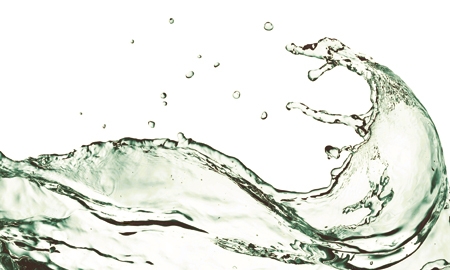Water is, of course, a crucial resource – not just to meet the basic needs of Algeria’s population, now mostly concentrated in the big cities, but also for agriculture and industry, which between them account for 70 per cent of the amount used. Rainfall varies from region to region but can fall to zero everywhere during the hot summer months.
The success of the agricultural sector depends entirely on rainfall during the growing season. The grain harvest hit a record 6.1 million tons in 2009 but fell back to 4.5 million tons in 2010 because of drought; last year it was around 4.2 million tons.
The authorities have intensified efforts to mobilise additional water resources, building new dams and desalination plants, reducing water loss and increasing the capacity for reusing treated wastewater. As a result Algeria is among the countries that have reached their millennium goals in terms of access to water and sanitation.
“The considerable efforts of the state in recent years in terms of water resources have significantly improved citizen access to drinkable water and sanitation across the entire national territory,” says Abdelmalek Sellal, Minister of Water Resources.
He says consumer satisfaction is palpable in many parts of the country, but is concerned this can bring complacency. “Citizens consider that the water problem is solved. Even though this situation is positive, it is also dangerous because it conceals the fact that our country has lived under water stress for over two decades, in part due to waste and pollution. Waste and water pollution are major difficulties we face.”
Apart from improving the quality of life of citizens, these volumes of water recovered will facilitate further agricultural development. AbdelMalek Sellal,
Minister of Water Resources |
He quotes a speech by President Abdelaziz Bouteflika in which he said: “Every single drop of water we waste today is gone forever.”
Algeria currently has 68 dams that are used to preserve water for drinking and irrigation – 38 of which have been built under President Bouteflika – and more are under construction.
The National Agency of Dams and Transfers (ANBT) is the agency responsible for the construction of dams. Its General Manager Brahim Nessala says: “ At independence in 1962 we had only 13 dams with a capacity of 450 million cubic metres. From 1962 to 1999, we completed 30 dams, to reach a total of 43 dams with a capacity of 2.6 billion cubic metres. From 1999 we built almost 40 more in 12 years, increasing capacity to 7 billion cubic metres. As of now, there are 12 dams under construction and we have launched tenders for three more.”
With most of the country’s major population centres strung along the coastline of the Mediterranean, advantage is being taken of the potential for desalination of seawater. In 2008, the president inaugurated Africa’s largest seawater desalination facility on a brownfield site just east of the Port of Algiers. The $250-million (£160-million) Hamma Seawater Desalination Plant provides water round the clock to the country’s increasingly populated and industrially active capital city.
Jointly funded by General Electric Company (GEC) and the state-owned Algerian Energy Company, the plant was part of a larger programme to build desalination stations across the country.
The entire programme, now with 13 desalination facilities, has been conducted in partnership with private sector companies on a build-own-operate-transfer basis. The programme is continuing with a new wave of plants planned for later this year.
Significant investments have also been made by the state in a national wastewater recycling programme, launched in 2008. The national sanitation network has been enlarged by more than 90 per cent, from 21,000 to 42,000 km. Eighty-seven per cent of households are now connected to public sewage systems.
Algeria has raised its sewage treatment capacity from 90 million cubic metres per year in 1999 to 800 million cubic metres per year. By 2015, capacity should reach 1.2 billion cubic metres per year, with 97 per cent of wastewater being treated.
“Apart from improving the quality of life of citizens, these volumes of water recovered will facilitate further agricultural development, while representing a significant gain in terms of water resources,” says Mr Sellal.
The Minister also says there are interesting opportunities for private-public partnerships, national or international, in the management of water resources in Algeria.
Currently, the administration of the water and sanitation public utilities of the four main Algerian cities – Algiers, Annaba, Constantine and Oran – is carried out by international private companies under management contracts.
This is not privatisation but an opportunity to benefit and learn from the companies’ expertise and experience, according to Karim Hasni, General Manager of the national sanitation holding company ONA, which jointly owns the local utilities with the national water holding company Algerienne des Eaux.
“It covers only the field of management, nothing more,” he says. “Everything remains state property, and we retain sovereign decisions regarding the water rates, investments etc. What interests us is the transfer of know-how.”

0 COMMENTS